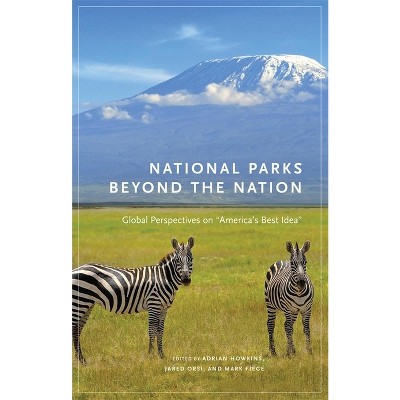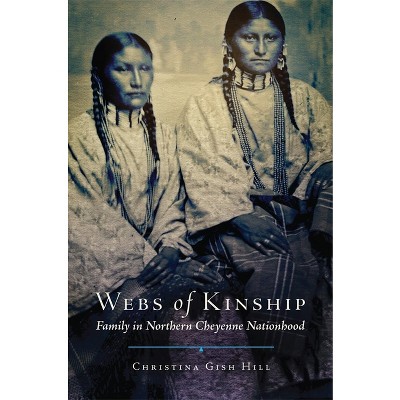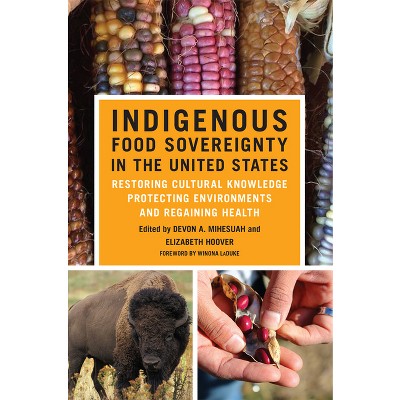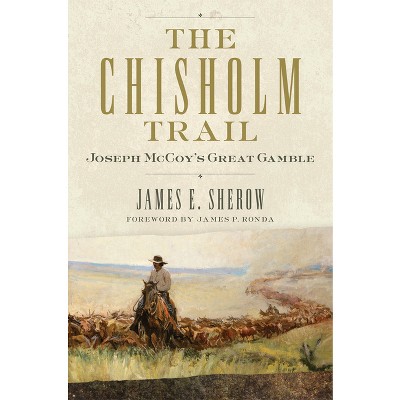National Parks, Native Sovereignty - (Public Lands History) by Christina Gish Hill & Matthew J Hill & Brooke Neely

About this item
Highlights
- The history of national parks in the United States mirrors the fraught relations between the Department of the Interior and the nation's Indigenous peoples.
- Author(s): Christina Gish Hill & Matthew J Hill & Brooke Neely
- 290 Pages
- Social Science, Ethnic Studies
- Series Name: Public Lands History
Description
About the Book
National Parks, Native Sovereignty emphasizes emotional commitment, mutual respect, and patience, rather than focusing on "land-back" solutions, in the co-creation of a socially sensible public lands policy.
Book Synopsis
The history of national parks in the United States mirrors the fraught relations between the Department of the Interior and the nation's Indigenous peoples. But amidst the challenges are examples of success. National Parks, Native Sovereignty proposes a reorientation of relationships between tribal nations and national parks, placing Indigenous peoples as co-stewards through strategic collaboration. More than simple consultation, strategic collaboration, as the authors define it, involves the complex process by which participants come together to find ways to engage with one another across sometimes-conflicting interests.
In case studies and interviews focusing on a wide range of National Park Service sites, the authors and editors of this volume-scholars as well as National Park Service staff and tribal historic preservation officers-explore pathways for collaboration that uphold tribal sovereignty. These efforts serve to better educate the general public about Native peoples; consider new ways of understanding and interpreting the peoples (Native and non-Native) connected to national park lands; and recognize alternative ways of knowing and using park lands based on Native peoples' expertise.
National Parks, Native Sovereignty emphasizes emotional commitment, mutual respect, and patience, rather than focusing on "land-back" solutions, in the cocreation of a socially sensible public lands policy. Ultimately it succeeds in promoting the theme of strategic collaboration, highlighting how Indigenous peoples assert agency and sovereignty in reconnecting with significant landscapes, and how non-Native scholars and park staff can incrementally assist Native partners in this process.
Review Quotes
"The book is unique in straddling a line between an intellectual engagement with these examples and a practical handbook designed to educate those willing and able to implement "new" ways of collaboration... The editors suggest a rough template with three key principles: initiating relationships, engaging in difficult conversations, and building sustained collaborations through formal agreements. This framing mostly reconfirms longstanding sets of principles and protocols true for any work that brings together unequal or disconnected groups. These core elements certainly push this book toward a non-Native audience, but the takeaway is that it unflinchingly pushes for park staff and managers to dig deeper and resist the lure of control, power, and promotion that constantly threaten to derail transformative and collaborative efforts. And it provides examples of how it works. That said, the specific collaborative strategies and techniques outlined will be of use to Indigenous communities seeking to shift their relationships with federal agencies, national parks, and otherwise managed environmental spaces."--Western Historical Quaterly
"This thoughtful volume offers lessons in fostering Indigenous agency and inclusivity beyond our national parks."-- Roundup, Western Writers of America
"In these times of climate change, we must embrace new models of conservation. National Parks, Native Sovereignty brings forth deep insights into the challenges and opportunities of a collaborative relationship between our national parks and those who are the traditional stewards. Both want to see these precious resources preserved for future generations and together they will be stronger and more successful."--Jonathan B. Jarvis, National Park Service director from 2009-2017 and co-author of The Future of Conservation in America: A Chart for Rough Water
"This brilliant collection of essays documents the ongoing struggle of Native communities to gain sovereignty in national parks. It simultaneously wrestles with a difficult, often painful past, while offering hope for a better future."--Matthew S. Makley, author of The Small Shall Be Strong: A History of Lake Tahoe's Washoe Indians
"Uniformly pertinent and well-crafted, this fascinating volume features the work of scholars as well as Indigenous National Park Service personnel and Tribal Historic Preservation Officers, many of whom balance agonizing ironies of their employment with empathy and gentle humor. National Parks, Native Sovereignty is a must for all who work to honor the cultural specifics of national parks while enriching the experience of a broad spectrum of visitors."--James F. Brooks, author of Mesa of Sorrows: A History of the Awat'ovi Massacre











